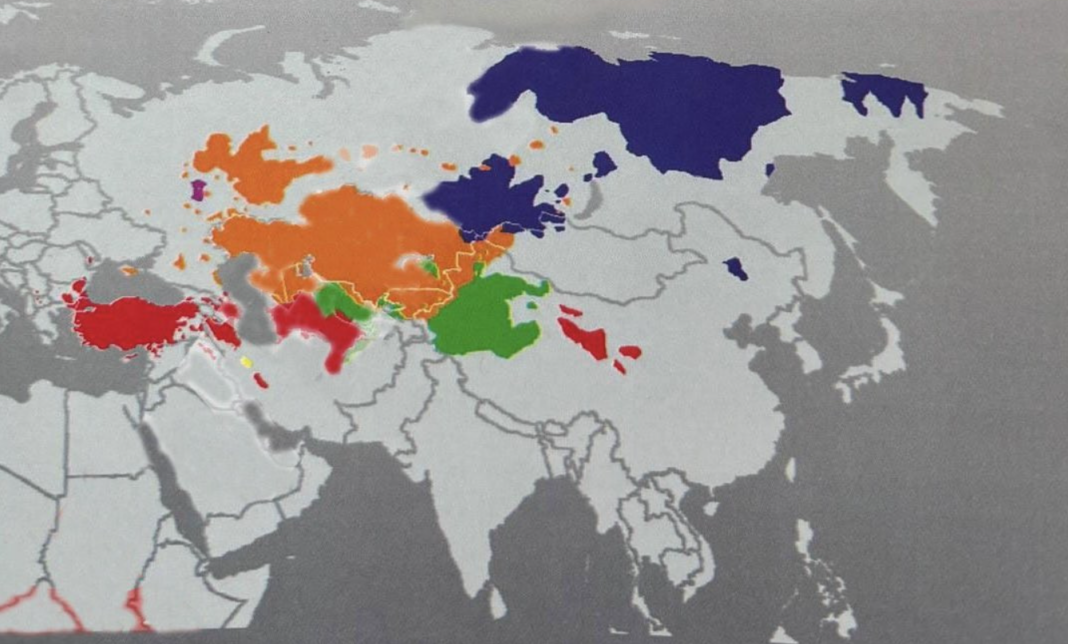The Turkish Ministry of Defense withdrew a military textbook after it was discovered that its cover featured a map of Turkic languages that acknowledged Kurdish-majority areas as distinct and excluded them from regions where Turkic languages are spoken, a move interpreted by many as aligning with Kurdish separatist views.
The textbook, used at the military academy, included a map on its cover illustrating the dispersion of Turkic-speaking populations in Anatolia and Central Asia. The map notably left out southeastern Turkey, a region where Kurdish is the predominant language.
The exclusion triggered an immediate backlash on social media, with critics accusing the map of undermining national unity by visually suggesting that Kurdish-majority areas are not part of the Turkic cultural or linguistic sphere.
Milli Savunma Üniversitesinin kitap kapağında Türkiye’nin güneydoğusu Türkçe konuşmuyor gibi gösterilmiş. Hadi bunu yaptınız, Türkmenlerin yaşadığı Musul ve Kerkük niye haritaya dahil edilmedi? Bizim bilmediğimiz yeni bir ülke, yeni bir harita mı var da hazırlığını yapıyorsunuz? pic.twitter.com/g3onLoiXOU
— Kesinlikle Umutella değil 🇹🇷 (@tatliskedis) November 28, 2024
In a statement released Thursday, the defense ministry claimed that the map had been produced without official approval. According to the ministry, an editor engaged an external graphic designer to create the cover, which was printed and distributed without the knowledge or consent of the university’s administration. The textbook was recalled as soon as the issue was identified.
“This map, which contradicts the principles of our national unity and integrity, was unauthorized and does not reflect the views of the institution. The books were immediately recalled, and corrective actions were taken,” the ministry said.
The statement also announced the resignation of Prof. Dr. Öztürk Emiroğlu, who had overseen the preparation of the textbook. The professor stepped down on November 9, following criticism over his decision to involve an outside editor in the project. Administrative and legal investigations into the matter have been launched, the ministry added.
The controversy highlights the sensitive nature of Kurdish identity and its relationship to Turkish nationalism. By visually excluding Kurdish-majority regions, the map was seen as acknowledging Kurdish linguistic and cultural distinctiveness, which some interpreted as aligning with the aspirations of Kurdish separatist movements. Many Turks viewed the map as undermining Turkey’s territorial integrity.
Kurdish identity has long been a politically charged issue in Turkey. While the government has made limited efforts in the past to address Kurdish cultural rights, it has maintained a hardline stance against the struggle for Kurdish autonomy or separatism. Maps or materials that explicitly or implicitly acknowledge Kurdish distinctiveness often provoke swift backlash in the political arena.
